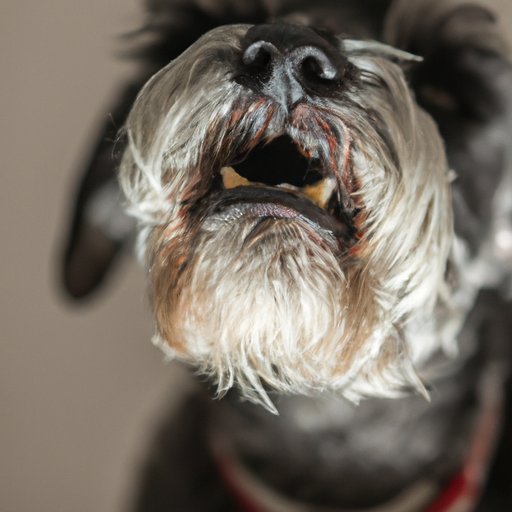I. Introduction
Having a dog as a companion can be a joyful experience, but it can also come with challenges, and one of those is sudden, frequent sneezing. Dog sneezes, like humans, are perfectly normal, but excessive sneezing can be a cause for concern. This article will explore the potential reasons behind your dog’s frequent sneezing and offer tips for dog owners to help them solve this problem effectively.
II. What’s Really Behind Your Dog’s Frequent Sneezes? Exploring the Potential Reasons
Just like humans, dogs’ sneezing is a body’s natural reaction to an irritant. Dogs, however, are more prone to sneezing in comparison to humans, and it can have multiple causes.
Environmental factors such as pollen, dust, and pollutants can cause sneezing. Respiratory infections, allergies, and underlying health conditions such as tumors or foreign objects in the nasal cavity can also cause sneezing.
III. Is Your Dog’s Sneezing an Allergy Symptom or Something More Concerning? We Investigate
Allergies are common in dogs and can result in excessive sneezing, itching, and other symptoms. Common environmental allergies include pollen, dust, and mold. Other allergies that can cause sneezing are flea and food allergies.
It’s essential to differentiate between allergy symptoms and other health problems, such as foreign bodies or nasal tumors. Identifying the root cause of the sneezing properly is vital to ensure adequate treatment.
IV. The Science Behind a Dog’s Sneeze: How Your Pup’s Nasal System Works and What It Means for Their Health
A dog’s sense of smell is far more superior to humans, and a dog’s nasal system plays an important role in their overall health. The nasal system helps filter out pollutants, bacteria, and other harmful particles that dogs inhale every day.
Chronic sneezing can have significant implications for your dog’s health. Frequent sneezing can be a sign of respiratory infections such as pneumonia or bronchitis. It can also cause nosebleeds, inflammation of the nasal passages, and sinus infections.
V. From Foreign Objects to Illnesses: Uncovering the Hazards that May Cause Your Dog to Sneeze
Dogs can encounter various environmental irritants that can cause sneezing. Whether it be grass or pollen, dust, or household cleaning products, these irritants can cause allergies in dogs and lead to frequent sneezing.
Additionally, some breeds such as Pugs or Bulldogs are prone to brachycephalic airway syndrome, which can affect their breathing and lead to sneezing. Kennel cough can also be a cause of excessive sneezing in dogs.
VI. Should You Be Worried About Your Dog’s Sneezing Frequency? A Vet’s Take on When to Seek Medical Attention
While occasional sneezing is considered normal, frequent or chronic sneezing may require veterinary attention. Signs of abnormal sneezing that you should be aware of include coughing, discharge from the nose or eyes, and lethargy.
If your dog exhibits any of these symptoms, it is essential to seek veterinary attention immediately. A veterinarian may perform a thorough physical examination and run diagnostic tests such as x-rays, blood tests, or allergy testing.
VII. Helping Your Furry Friend Find Relief: Natural Remedies and Treatments for Excessive Sneezing in Dogs
There are several natural remedies and conventional treatments available that can help alleviate your dog’s excessive sneezing. Natural remedies such as steam therapy, saline nasal flushes, and immune-boosting supplements can often be helpful in reducing your dog’s sneezing.
Conventional treatments such as antihistamines, nasal decongestants, and antibiotics may also be prescribed by your veterinarian if your pet has an underlying infection or allergy.
VIII. Conclusion
While having a dog frequently sneezing can be annoying and concerning, it’s important to understand that it can be treated and managed successfully. Identifying the root cause of your dog’s sneezing is critical to ensure appropriate treatment. With proper care and attention, including regular visits to a veterinarian and minimizing exposure to potential irritants, frequent sneezing can often be prevented and resolved.
